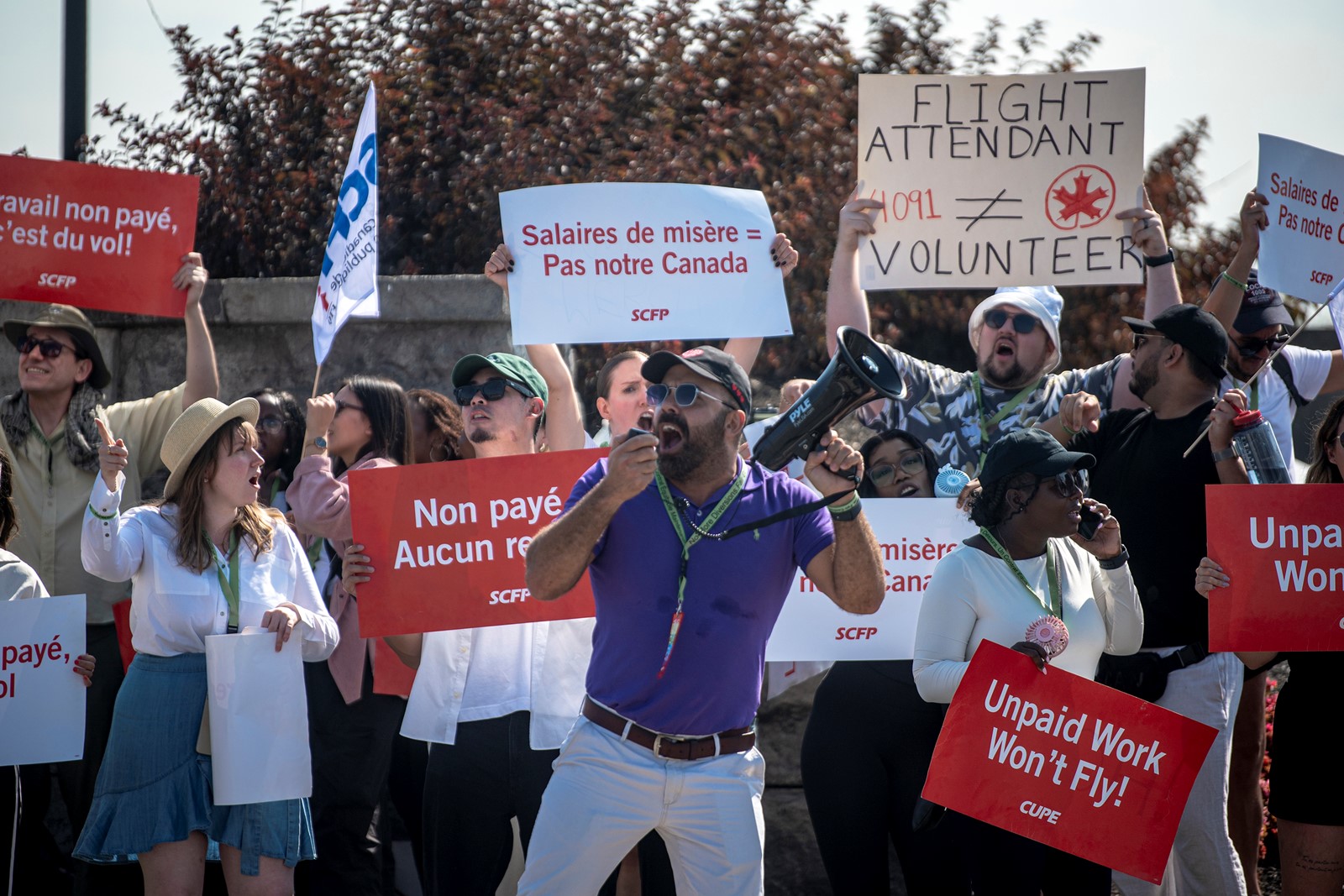
Just under 12 hours after Air Canada’s 10,000 flight attendants walked off the job, seeking better wages, the government imposed binding arbitration to shut down the strike and avert mounting travel chaos.
“The impact of the work stoppage at Air Canada that began early this morning is already being felt by travelers,” Patty Hajdu, the labor minister in the Liberal government, told reporters. “This is causing significant harm and has negative impacts on Canadians and the Canadian economy.”
Air Canada will not immediately begin flying, she said. An independent industrial labor relations board will need 24 to 48 hours for a review before issuing a back-to-work order. Hajdu said that Air Canada has told the government that restoring full service would take an additional five to 10 days.
In an unsigned email, Air Canada, which said that it had locked out the striking workers early Saturday, declined to comment on the minister’s decision, adding that it was too early to say how long it would take to get its planes flying.
Hundreds of striking flight attendants outside Toronto Pearson International Airport reacted swiftly and angrily, chanting, “Shame on you, Patty Hajdu,” and “We won’t stop,” as passing motorists honked their horns in solidarity.
“The Liberals are violating our charter rights to take job action and giving Air Canada exactly what they want — hours and hours of unpaid labor from underpaid flight attendants,” Wesley Lesosky, president of the Air Canada group of the Canadian Union of Public Employees, said in a statement.
The flight attendants, 70% of whom are women, are seeking improved compensation, particularly for the hours they are working but not airborne. Currently, Air Canada flight attendants are paid an hourly wage only for the time planes are in the air, a formula they say is unfair. In recent years, some major U.S. airlines, including Delta Air Lines, American Airlines and Alaska Airlines, have started paying for work performed while planes are on the ground.
Hajdu said the airline and negotiators met through Friday night into Saturday morning. While an offer was made by one of the parties, she said, talks collapsed.
Earlier in the week, Air Canada asked the government to force the union to enter arbitration after failing to get the union to agree to the process. Government-mandated arbitration, however, is normally used to end long and disruptive walkouts, and arbitrators typically do not introduce major changes — like compensation for work before and after flights — in contracts they impose.
Though short, the strike had created difficulties, both for those trying to reach some of the 65 foreign countries Air Canada flies to, and for domestic travelers, since the country’s vastness often makes flying the only viable form of travel. The airline said it had canceled about 700 flights, expected to affect about 130,000 passengers daily.
Rob Van Helden of the Netherlands had been vacationing in Costa Rica as part of a group of 16 family friends — eight of them children — and was flying to Amsterdam through Toronto when the strike began.
The group stayed at a hotel Friday, and some of the adults were at Pearson airport early Saturday, before the end to the strike was announced, trying to work out their options. Air Canada had booked them on a flight for Wednesday, he said, which meant four more nights of hotel bills in Canada.
Van Helden said the group was looking into paying about $600 a person to fly to Detroit and then to Amsterdam on KLM, the Dutch carrier.
Air Canada said it would try to rebook passengers on other carriers, but the busy summer travel period and a lack of capacity on its smaller domestic competitors was making that hard.
Hajdu cited the economic disruption President Donald Trump’s tariffs have brought to Canada’s economy as one of the reasons behind her decision to end the strike.


 PREVIOUS ARTICLE
PREVIOUS ARTICLE
